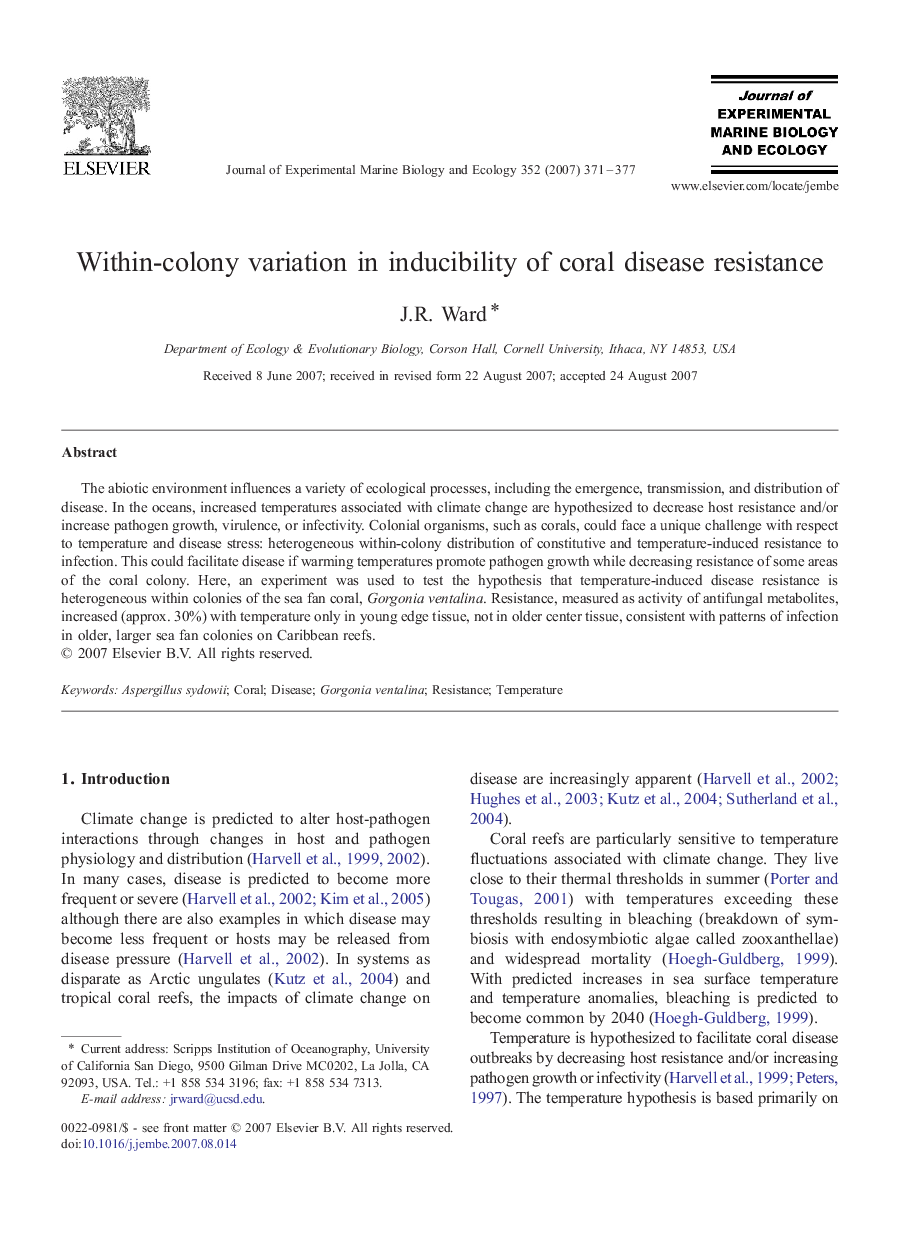| Article ID | Journal | Published Year | Pages | File Type |
|---|---|---|---|---|
| 4397521 | Journal of Experimental Marine Biology and Ecology | 2007 | 7 Pages |
The abiotic environment influences a variety of ecological processes, including the emergence, transmission, and distribution of disease. In the oceans, increased temperatures associated with climate change are hypothesized to decrease host resistance and/or increase pathogen growth, virulence, or infectivity. Colonial organisms, such as corals, could face a unique challenge with respect to temperature and disease stress: heterogeneous within-colony distribution of constitutive and temperature-induced resistance to infection. This could facilitate disease if warming temperatures promote pathogen growth while decreasing resistance of some areas of the coral colony. Here, an experiment was used to test the hypothesis that temperature-induced disease resistance is heterogeneous within colonies of the sea fan coral, Gorgonia ventalina. Resistance, measured as activity of antifungal metabolites, increased (approx. 30%) with temperature only in young edge tissue, not in older center tissue, consistent with patterns of infection in older, larger sea fan colonies on Caribbean reefs.
